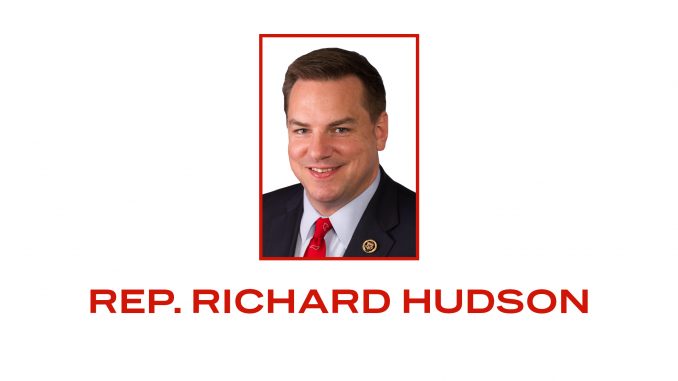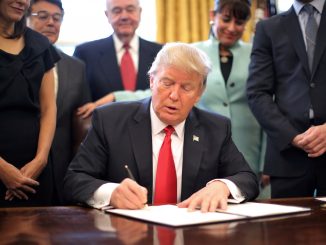
As winter bid a cold farewell in Washington last week, a snow storm did not stop the House Energy and Commerce Committee’s Subcommittee on Health from continuing our important work to combat the opioid crisis. We considered more than two dozen bills aimed at prevention, treatment and cutting off the supply of illicit drugs, including a bill I wrote to come up with better ways to dispose of excess opioids. This is a common-sense measure to prevent unused pain medicine from getting in the wrong hands.
Think about it. When pain pills go unused, they frequently sit in medicine cabinets instead of being properly disposed. I’ve heard of people looking for opioids going to realtor open houses just to go through medicine cabinets. We should be fighting this problem from the packaging and disposal angle. Methods included in my draft bill involve mail-back pouches to secure facilities for incineration and ways to immediately inactivate or destroy unused drugs. In addition, my bill would facilitate packaging that may reduce overprescribing opioids and require the Government Accountability Office to study new and innovative technologies that claim to be able to safely dispose of opioids and other unused medications.
As your congressman, I was proud that last week we heard from a company based in our district that is leading the way on fighting the opioid epidemic. DisposeRx is the country’s leading site-of-use medication disposal company. Chairman and CEO Dr. John Holaday discussed how his company manufactures a powder that mixes with water inside a pill bottle and renders any unused opioids inaccessible and biodegradable. It’s innovative ideas like this that we need to explore because the opioid epidemic continues to devastate families. Did you know that in 2016, America lost more than 42,000 loved ones to the opioid crisis? In North Carolina alone, we have four of the top 25 worst cities for abuse in the country. It is truly the crisis next door.
As someone who has worked on this issue for years, I appreciate President Donald Trump’s leadership and passion on combatting the opioid crisis, and I welcomed the proposal his administration put forward last week focused on stiffer penalties for drug dealers, an education campaign with law enforcement, funding treatment, and helping those impacted by the epidemic to find jobs and opportunities. This issue is important to me, and I remain committed to working with the administration, my colleagues, and state and local officials to raise awareness and find ways to defeat this opioid epidemic.
Another top priority is supporting our veterans. Last Friday, I hosted the Committee of Veterans Affairs in an open session to conduct an oversight field hearing in Fayetteville. As Fort Bragg’s congressman and a voice for veterans, my top priority is ensuring veterans can get the best health care when they need it. I regularly speak with veterans who are struggling to access timely, quality care the Choice Program was intended to provide. Congress and this administration have made significant progress, but there’s still work to do.
At the field hearing led by Veterans Affairs Chairman Phil Roe, caregivers, veterans, representatives from the VA, and community health providers shared their perspectives on how we can improve veteran access to community providers and health care. As Chairman Roe said, “Every VA facility is different, and I realize that the best ideas for reform often start outside Washington, D.C.” I want to thank the witnesses for sharing their time and perspectives with the committee. I am committed to ensuring the important conversations we are having about veteran care — as well as the opioid epidemic — lead to real action that saves lives and helps people throughout our district and country.



